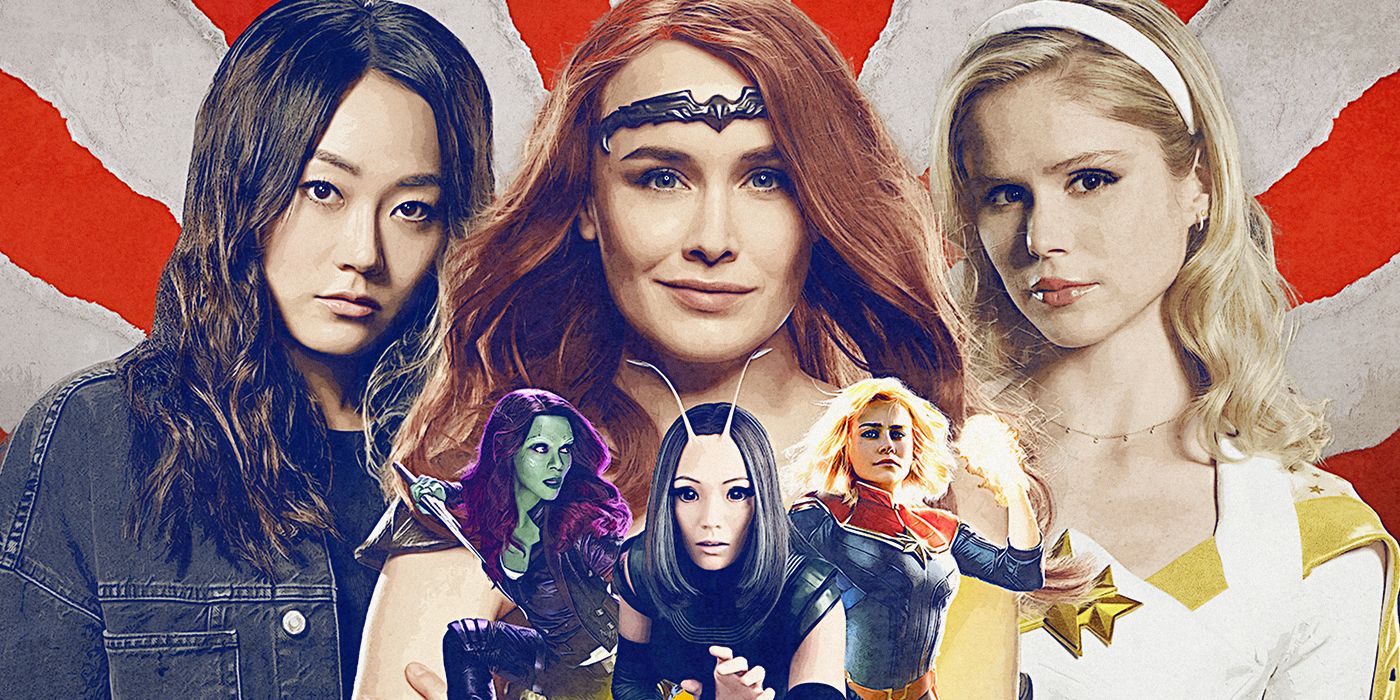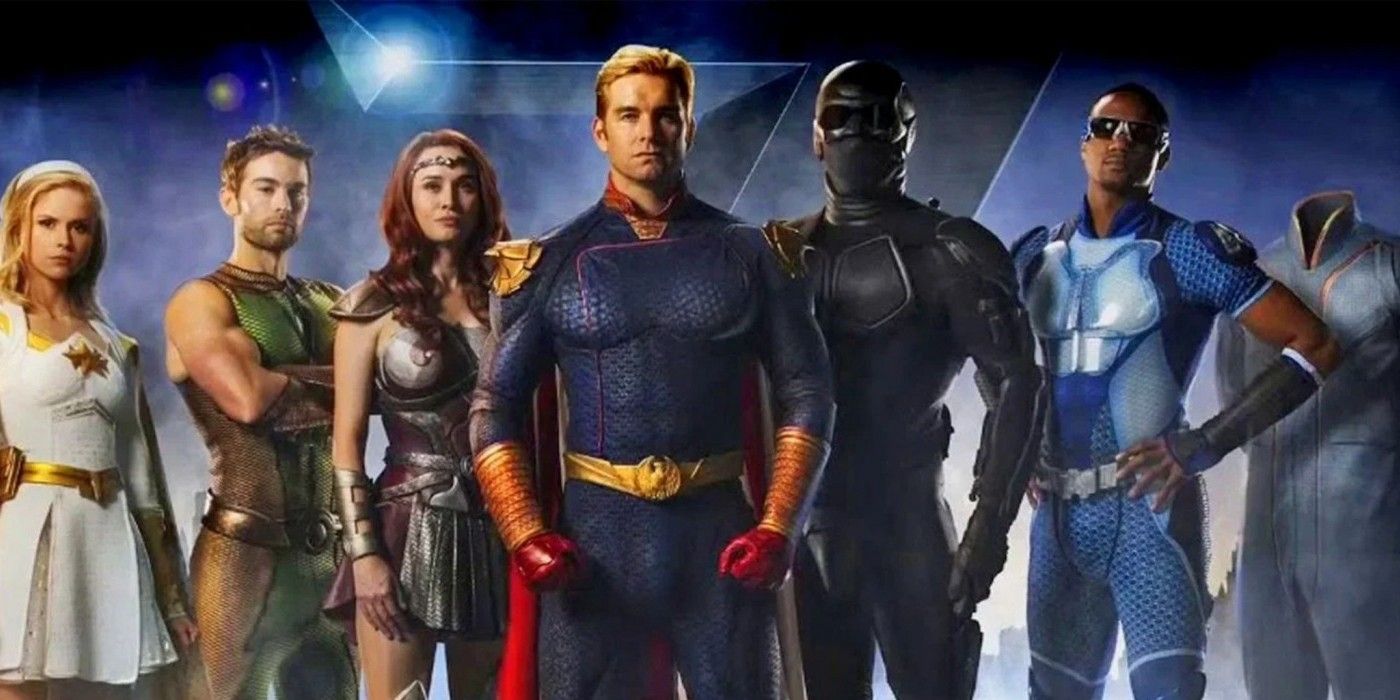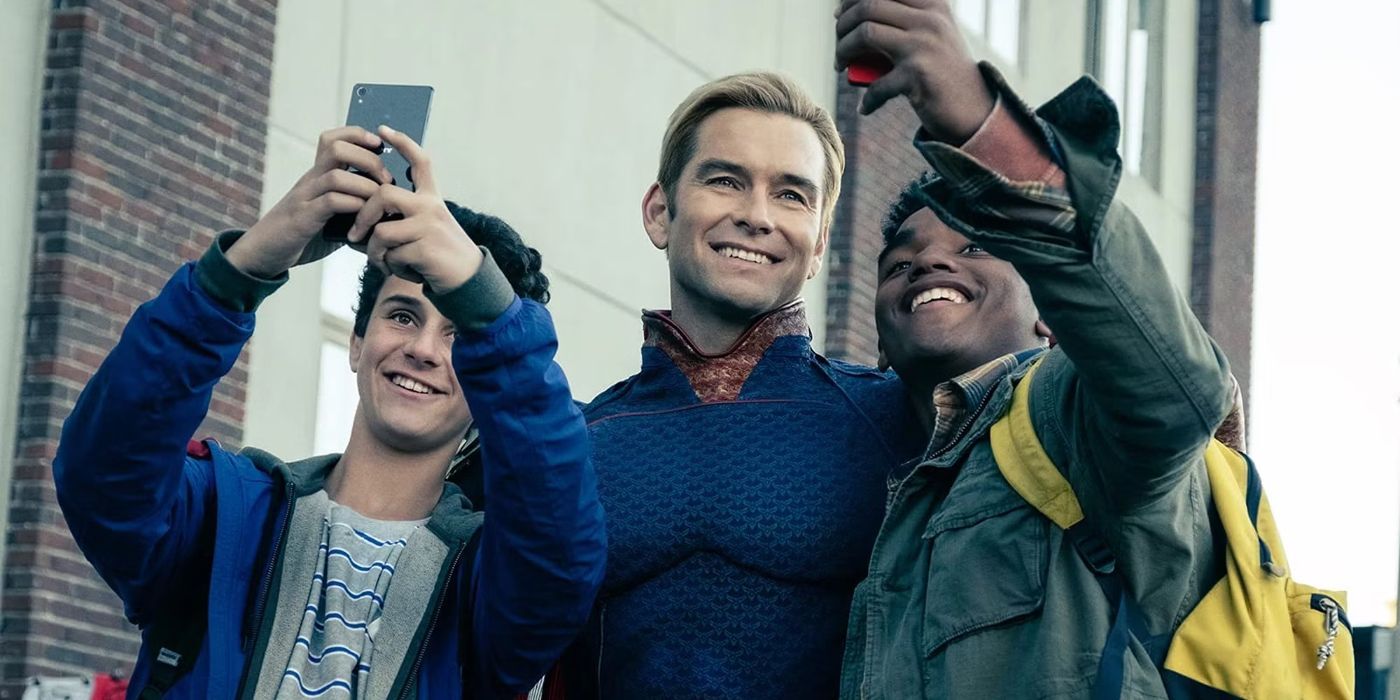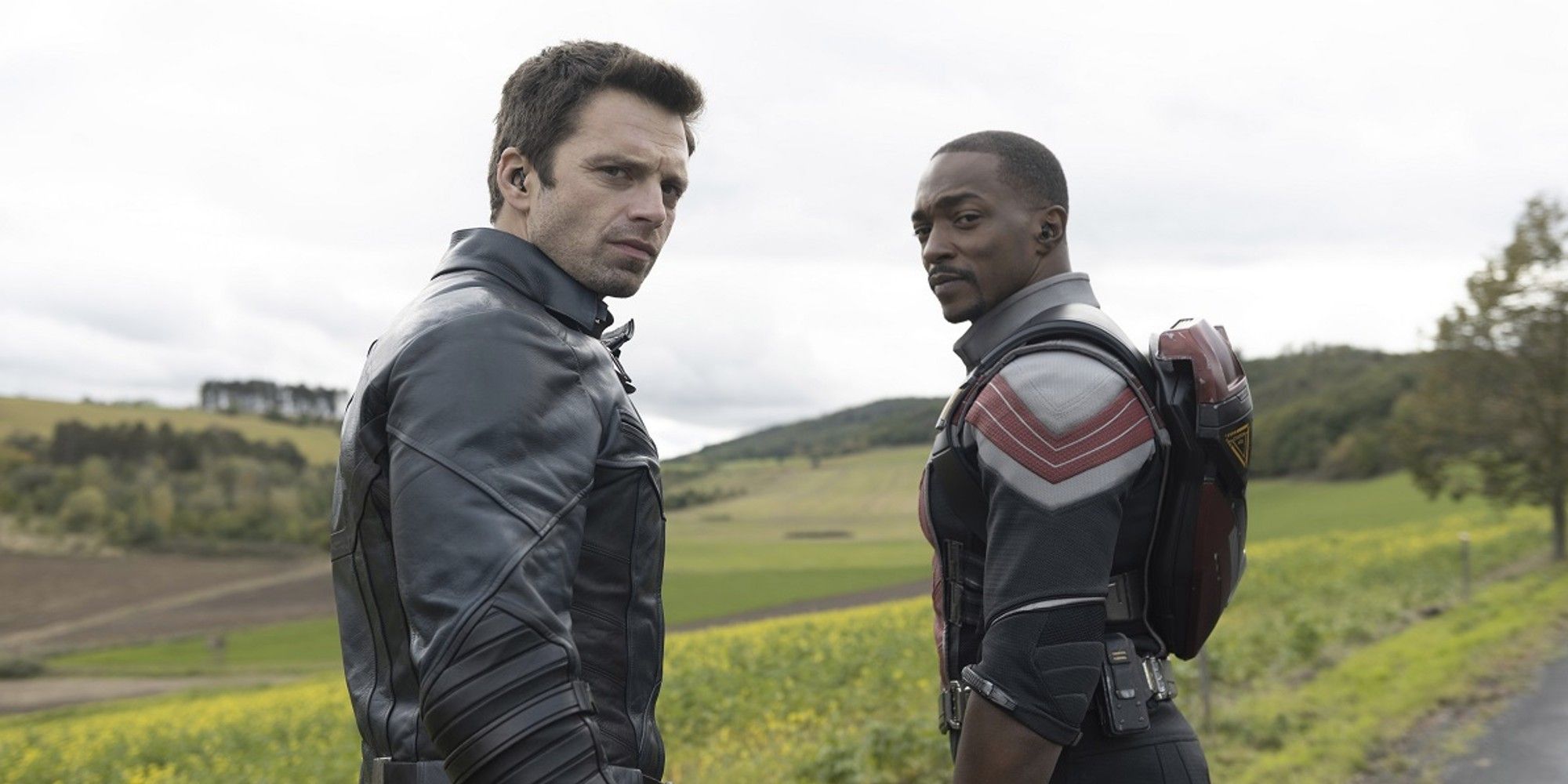The Big Picture
- The Boys successfully brings real-world issues and problems into its narrative, creating impact and repercussions that other superhero franchises, including Marvel, fail to achieve.
- The creative freedom of The Boys, as a relatively newer franchise, allows it to incorporate weird and satirical elements from the comics in a way that works for the TV series.
- The Boys incorporates real-world elements into its story, functioning as a satire of the superhero genre, while Marvel, with its idealistic approach, struggles to effectively address similar issues in its movies and TV series.
Right now, we’re living in one of those blessed periods for superhero fans, when new episodes of Gen V and Loki air within moments of each other. Both shows are getting great reviews and telling some great, weird stories that we love to see. The MCU and The Boys have become the two main powerhouses in the superhero genre nowadays (hopefully DC will soon find its way under James Gunn, too), but they couldn’t be further apart in what kind of stories they tell and, even when they do tell similar ones, in how they tell them.
One of the things people usually mention when talking about why they like The Boys is how this particular universe manages to bring real-world issues and problems to its own narrative. Many other franchises have been trying to address these topics in movies and series, especially Marvel, but fail to create the same impact and repercussions The Boys does. Why is that, exactly? How come the House of Ideas, with so many different superheroes, can’t be more relevant in stirring debate around current events while The Boys does it pretty much with every new episode?
The Boys
A group of vigilantes set out to take down corrupt superheroes who abuse their superpowers.
- Release Date
- July 26, 2019
- Cast
- Karl Urban, Antony Starr, Erin Moriarty, Dominique McElligott, Laz Alonso, Chace Crawford, Colby Minifie, Aya Cash
- Genres
- Superhero, Action, Sci-Fi, Drama, Crime
- Rating
- TV-MA
- Seasons
- 4
- Studio
- Amazon Studios
‘The Boys’ Has More Freedom With Being a Relatively Newer Franchise
There’s a lot of pressure when adapting decades of widely known material from comics and beloved characters into movies or television series, but The Boys doesn’t have any of that these days. Compared to Marvel, The Boys comics are relatively new, actually, having been around since 2006. The comics also had more freedom to do their own thing because they were published by Dynamite, a smaller brand that allowed co-creators Garth Ennis and Darick Robertson free rein over their own story, and that’s how the TV series got so much weird stuff to pull from. This isn’t necessarily better or worse than writing for a big brand — it’s just different, and worked perfectly when it was time to take the comics to the small screen.
With all due respect to the comics and the hardcore fans who’ve been around since day one, it’s pretty safe to say that The Boys is mostly known for its flagship series on Prime Video, as well as its two spinoff series, The Boys Presents: Diabolical and Gen V. These shows may have even more creative freedom than the comics because they’re not necessarily limited to the original storylines and can find success on their own terms. Instead, the franchise led by Eric Kripke does its own thing by bringing real-world stuff to the writers’ room and choosing to be not so much an adaptation, but fully embracing its satirical nature (but more on that later). In that sense, the things it pulls from the comics are never adapted exactly as they take place in the comics. The concepts may be there, but they don’t serve the purpose of the series if they aren’t adapted.
Stormfront’s (Aya Cash) story, for example, doesn’t have the same impact in the comics because there is no relationship with Homelander (Antony Starr), so her Nazi past couldn’t be as relevant as it was in Season 2. Back then, we had to watch important people making Nazi references and dog whistles on TV while many people remained unaware of it — part of Stormfront’s most impactful storyline in the series. Without these changes, there would be no sense in even making a The Boys TV series, because the comics just always go there. Stormfront is such an impactful character that she’s responsible for Homelander’s current idea that Supes are actually better than ordinary people and should be treated as such. In Gen V, we see the “Supes Lives Matter” movement as a consequence of that and a mirror of a similar real-world idea. In the comics, Stormfront’s role is mainly being the Nazi we see getting punched (which is always nice, of course), and not even by the girls in the group. That’s how the series gets the comics to work for them — and not the other way around, as we’ll see with Marvel.
‘The Boys’ Wouldn’t Work As Well If It Didn’t Incorporate Real-World Elements Into Its Story
The main premise of The Boys in both the comics and the TV show is: What if superheroes were real? The answer is that they would live in the same world as us, watching the same news and having their thoughts similarly influenced by everyday things. They would be celebrities who speak their twisted minds in public, vying for public attention and adoration as something they are owed for their service, which they wouldn’t see as a responsibility.
This is how satire is supposed to work because this question has already been asked countless times in the superhero genre, both in comics and on-screen. We like to think of The Dark Knight as realistic with its dark and gritty approach to superheroes, but the fact is that it’s almost naively idealistic — a billionaire using their resources to help ordinary people isn’t even fathomable in our world. The whole premise of Spider-Man is that having powers invites their own responsibility to the community — which in itself is an ideal, but wouldn’t have any translation in reality. In fact, the harsh reality is that Batman would probably put Peter Parker in jail and Miles Morales in juvie.
As a satire of the genre, the purpose of The Boys is to take all the ideas behind the superheroes — who are supposed to be just that, ideas for what we ourselves aspire to be — and show us how it would look in the mirror. Marvel can’t do that because they aren’t a satire, they’re the ones who make the ideals. They do have satirical characters like Deadpool (Ryan Reynolds), but even he knows that he’s part of a larger machine that just doesn’t work like that.
The MCU Is a Problem in Itself When Addressing Real-Word Issues
There’s a lot of pressure when adapting decades of widely known material from comics, not to mention beloved characters, into movies or television series. Marvel is all about that; otherwise, the fans would go crazy. For a long time, their comics have been setting the standard in superhero storytelling because they understood their role as being something unattainable. No one can swing through buildings, there’s no super soldier serum, and no one has designed suits of armor that allow them to fly — but if they had, this is how they should behave, and that’s great. We need role models because we are flawed, but heroes can’t be. That’s why Captain America and Superman may sound boring, but it’s what actually makes them great.
But Marvel has always done a better job of tackling real-world issues in the comics than in its movies and TV series. Anyone who’s ever read Captain America: Red, White, and Blue has surely been impacted, but, when this storyline was brought to screens in The Falcon and the Winter Soldier, it sounded a lot like “having a talk.” This is arguably the MCU work that tries the hardest to address racial and social issues, and it succeeds for the most part, but its crowning achievement is turning Sam Wilson (Anthony Mackie) into an idea. No one calls him “just Falcon,” as he wants, because even in the MCU they need their ideals and role models. The MCU is still an idealistic comic book world, meaning that it shows us how things should be, not how they are. Of course, there are racial issues there, too, and it’s clear by the end of The Falcon and the Winter Soldier that the white people at the top aren’t happy with a Black Captain America, and that’s realistic, but the series ultimately still wraps up with being about how we can be better by sticking to our ideals.
There’s yet another issue that serves as an obstacle to the MCU when it comes to addressing real-world problems: the stakes. Marvel has several different planets and realms where the action takes place, and all of those inevitably have to come together at the end to fight one common threat. It did so in the Infinity Saga with Thanos (Josh Brolin), it’s doing it now in the Multiverse Saga with Kang (Jonathan Majors), and it will do it again after that. That’s how the MCU is supposed to work, with one movie or series serving as a step on a staircase that leads to the great all-encompassing arc that threatens everything. When there are cosmic or multiversal stakes, it’s very hard to put someone like Isaiah Bradley (Carl Lumbly) in perspective, as important as his life and suffering really are. Even his experience is but a step in Captain America (Chris Evans) and the Winter Soldier’s (Sebastian Stan) road to that multiversal battle — and we talk about it, sure, but way less than we should. When it comes to the various superhero stories being told on-screen, there are some aspects that the MCU still reigns supreme over, but ultimately, the world of The Boys is succeeding in ways that Marvel hasn’t figured out how to tackle.
The Boys is available for streaming exclusively on Prime Video in the U.S.
Denial of responsibility! TechCodex is an automatic aggregator of the all world’s media. In each content, the hyperlink to the primary source is specified. All trademarks belong to their rightful owners, and all materials to their authors. For any complaint, please reach us at – [email protected]. We will take necessary action within 24 hours.
Khushi Patel is a science fiction author who lives in Austin, Texas. She has published three novels, and her work has been praised for its originality and imagination. Khushi is a graduate of Rice University, and she has worked as a software engineer. She is a member of the Science Fiction Writers of America, and her books have been nominated for several awards.





